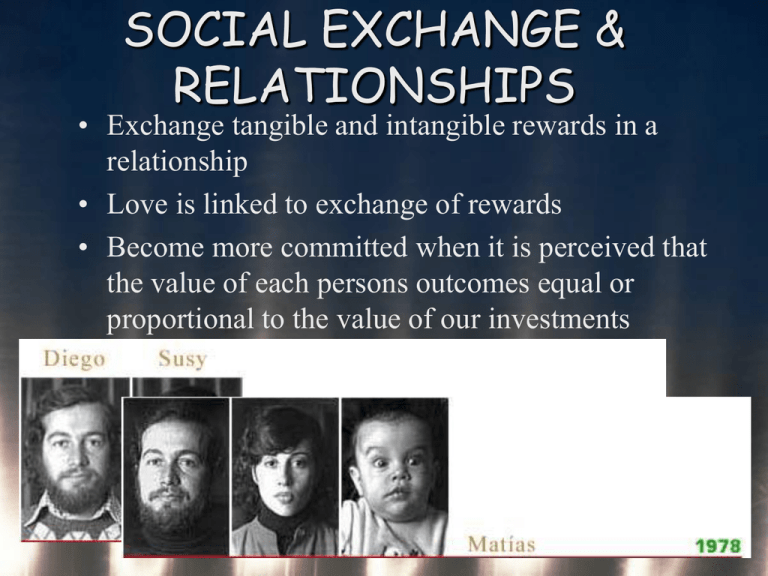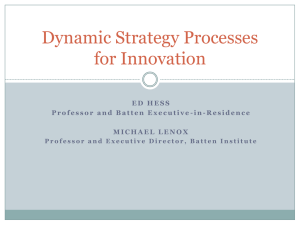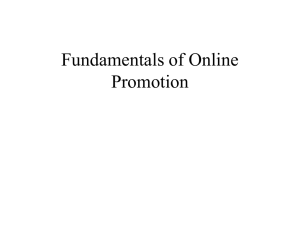SOCIAL EXCHANGE & RELATIONSHIPS
advertisement

SOCIAL EXCHANGE & RELATIONSHIPS • Exchange tangible and intangible rewards in a relationship • Love is linked to exchange of rewards • Become more committed when it is perceived that the value of each persons outcomes equal or proportional to the value of our investments • Equity is valued • But, Equity may be destabilizing as it recognizes status differentials, and • therefore, people in relationships do not have the same value • Relationships develop because rewards are reinforcing and are greater than costs INTERDEPENDENCY • Rewards must promote interdependency for relationship to progress to more intimate levels • Interdependence -- extent to which one’s outcome’s -returns-- depend on outcomes received by partner, and • degree to which each one’s profits are greater than likely in another relationship. Self Interest Anchors Relationships We seek out those we anticipate will be rewarding • • We need to provide rewards to get rewards • Reciprocity of rewards important • Seek out only those partners who are: – a) “attractive” to us – b) likely to reciprocate Relationships often fail to progress beyond initial encounters because Types of rewards are readily available from a number of sources (e.g., approval for information) Not profitable enough to assume cost of increased involvement WHAT IS A REWARD? • Don’t always know in advance - often ex post facto - tautology - a reward is rewarding • “Rewards” can be costs as well (e.g., assistance from another) • Social Approval is not always rewarding (e.g., compliments from unappealing person) • How are values determined? How much love; how much information? WHAT IS FAIR? • Does fair mean Equitable? • What is equitable? • What Decision Rules might define equitable? Fairness Decision Rules Maximize joint profits (Cooperative Behavior) Maximize other’s profits (altruism) Maximize difference between own & other’s profits (e.g., elites) Keep relative distance the same (status consistency) Contribution rule (outcomes match contribution) Need Rule (outcome matches needs) Equality (divide equally) Limitations of Social Exchange Theories • Are people really that self-interested? – Is altruism really self-interest • Are people really that calculating – assumes active and highly aware • Are people that goal oriented? – assumes intent to maximize profits – assumes we interact because others control valuables/necessities – assumes to induce rewards must give rewards



